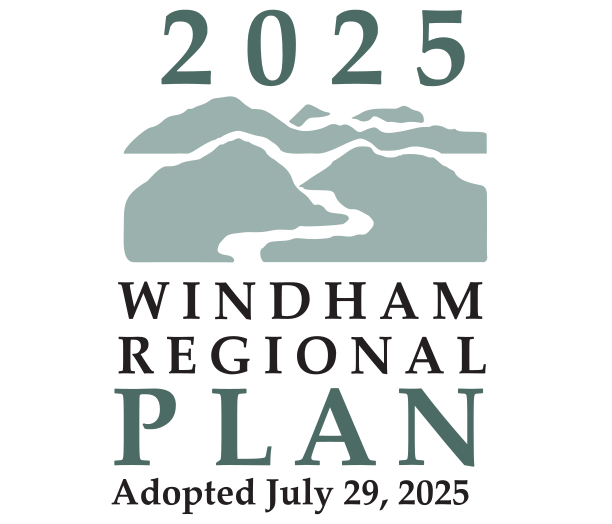Community Utilities, facilities, and services
Solid Waste Management
Solid waste disposal services are essential to protect public health and the environment. In addition to the typical residential and commercial waste, there are numerous special wastes, such as hazardous materials, used motor oil, and septage that need to be properly separated and handled. As the region plans for its future solid waste management needs, it is important to develop strategies that reduce the quantity of waste generated and to ensure proper disposal of all materials. Recycling, composting, and hazardous waste collection are important components of solid waste management.
Eighteen towns in the region belong to the Windham Solid Waste Management District (Brattleboro, Brookline, Dover, Dummerston, Guilford, Halifax, Jamaica, Marlboro, Newfane, Putney, Readsboro, Stratton, Townshend, Vernon, Wardsboro, Westminster, Whitingham, Wilmington, and Winhall), two belong to the Southern Windsor/Windham Counties Solid Waste Management District (Grafton and Rockingham), and three (Londonderry, Weston, and Windham) belong to the Londonderry Cooperative Group. Searsburg operates its own municipal facility. Athens has a contract with Triple T Trucking for services and Somerset (an unincorporated town) has no waste management facility.
Vermont state law requires all towns to adopt a Solid Waste Implementation Plan (SWIP), either individually or through a solid waste district or inter-municipal association. The SWIP must document town or district waste facilities, explain how solid waste will be managed, and demonstrate compliance with the statewide Materials Management Plan adopted in 2019. In addition, SWIPs must be in conformance with any Town Plan and the Regional Plan.
In 2012, the Vermont Legislature passed the Universal Recycling Law (Act 148), mandating universal recycling and composting throughout the State by 2020. The law was phased in and banned the disposal of common recyclables in 2015, leaves, yard debris, and clean wood in 2016, and food scraps in 2020. The law requires all facilities and haulers that collect trash to offer recycling and food scrap collection. Transfer stations and bag drop haulers must also offer leaf and yard debris collection seasonally. According to the Universal Recycling 2019 Status Report, approximately 72% of recyclable paper and containers are being recycled statewide. Home composting of food scraps is also on the rise with 58% of Vermonters reporting they compost or feed animals at least some food scraps in a 2018 poll by the Castleton Polling Institute.
The disposal of hazardous waste occurs in two different ways. District facilities accept wastes such as antifreeze, waste oil and cadmium batteries for recycling. Other household hazardous waste items (and waste from conditionally exempt small quantity generators) are disposed during special hazardous waste collection days that are held several times each year. Federal and State regulations govern the management and disposal practices of all industries, businesses, and institutions that generate in excess of 100 kg (220 pounds) of hazardous waste or 1 kg (2.2 pounds) of acute hazardous waste per month.
The only large industrial sources of wastewater sludge in the region are paper mills. Paper mill wastewater is treated on site by its generators. The solid and liquid portions from that process must be treated or disposed of, sometimes with wastewater treatment plant sludge and septage.
